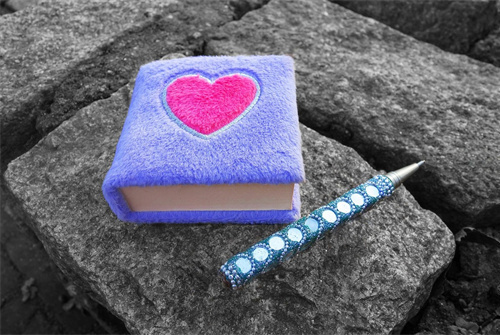圣經(jīng)名言妙語(yǔ)

圣經(jīng),在我們身邊無(wú)處不在。下面是雨露文章網(wǎng)小編為大家精心整理的圣經(jīng)名言人生哲理大全,歡迎閱讀!
001 Love your neighbor as yourself.
要愛(ài)人如己。--《舊?利》19:18
002 Resentment kills a fool, and envy slays the simple.
忿怒害死愚妄人,嫉妒殺死癡迷人。--《舊?伯》5:2
003 Does a wild donkey bray when it has grass, or an ox bellow when it has fodder?
野驢有草豈能叫喚,牛有料,豈能吼叫。--《舊?伯》6:5
004 I will speak out in the anguish of my spirit, I will complain in the bitterness of my soul.
我靈愁苦,要發(fā)出言語(yǔ)。我心苦惱,要吐露哀情。--《舊?伯》7:11
005 Can papyrus grow tall where there is no marsh? Can reeds thrive without water?
蒲草沒(méi)有泥,豈能發(fā)長(zhǎng)。蘆荻沒(méi)有水,豈能生發(fā)。--《舊?伯》8:11
006 Is not wisdom found among the aged? Does not long life bring understanding?
年老的有智慧,壽高的有知識(shí)。--《舊?伯》12:12
007 The lamp of the wicked is snuffed out; the flame of his fire stops burning.
惡人的亮光必要熄滅。他的火焰必不照耀。--《舊?伯》18:5
008 that the mirth of the wicked is brief, the joy of the godless lasts but a moment.
惡人夸勝是暫時(shí)的,不敬虔人的喜樂(lè),不過(guò)轉(zhuǎn)眼之間。--《舊?伯》20:5
009 There is a mine for silver and a place where gold is refined. Iron is taken from the earth, and copper is smelted from ore.
銀子有礦,煉金有方。鐵從地里挖出,銅從石中溶化。--《舊?伯》28:【第1句】:2
010 Man does not comprehend its worth.
智慧的價(jià)值無(wú)人能知。--《舊?伯》28:13
011 The price of wisdom is beyond rubies.
智慧的價(jià)值勝過(guò)珍珠。--《舊?伯》28:18
012 To shun evil is understanding.
遠(yuǎn)離惡便是聰明。--《舊?伯》28:28
013 It is not only the old who are wise, not only the aged who understand what is right.
尊貴的不都有智慧。壽高的不都能明白公平。--《舊?伯》32:9
014 Surely no one lays a hand on a broken man when he cries for help in his distress.
人仆倒豈不伸手?遇災(zāi)難豈不求救呢?--《舊?伯》30:24
015 Age should speak; advanced years should teach wisdom.
年老的當(dāng)先說(shuō)話。壽高的當(dāng)以智慧教訓(xùn)人。--《舊?伯》32:7
016 For the ear tests words as the tongue tastes food.
耳朵試驗(yàn)話語(yǔ),好像上膛嘗食物。--《舊?伯》34:3
017 Blessed is the man who does not walk in the counsel of the wicked or stand in the way of sinners or sit in the seat of mockers.
不從惡人的計(jì)謀,不站罪人的道路,不坐褻慢人的座位。--《舊?詩(shī)》1:1
018 He is like a tree planted by streams of water, which yields its fruit in season and whose leaf does not wither.
要像一棵樹(shù)栽在溪水旁,按時(shí)候結(jié)果子,葉子也不枯干。--《舊?詩(shī)》1:3
019 He who is pregnant with evil and conceives trouble gives birth to disillusionment.
惡人因奸惡而劬勞。所懷的是毒害,所生的是虛假。--《舊?詩(shī)》7:14
020 like silver refined in a furnace of clay, purified seven times.
純凈的言語(yǔ),如同銀子在泥爐中煉過(guò)七次。--《舊?詩(shī)》12:6
021 The wicked freely strut about when what is vile is honored among men.
下流人在世人中升高,就有惡人到處游行。--《舊?詩(shī)》12:8
022 Has no slander on his tongue, who does his neighbor no wrong and casts no slur on his fellowman,
不以舌頭讒謗人,不惡待朋友,也不隨夥毀謗鄰里。--《舊?詩(shī)》15:3
023 Do not be like the horse or the mule, which have no understanding but must be controlled by bit and bridle or they will not come to you.
不可像那無(wú)知的騾馬,必用嚼環(huán)轡頭勒住他,不然,就不能順?lè)?-《舊?詩(shī)》32:9
024 No king is saved by the size of his army; no warrior escapes by his great strength.
君王不能因兵多得勝。勇士不能因力大得救。--《舊?詩(shī)》33:16
025 Whoever of you loves life and desires to see many good days, keep your tongue from evil and your lips from speaking lies.
有何人喜好存活,愛(ài)慕長(zhǎng)壽,得享美福,就要禁止舌頭不出惡言,嘴唇不說(shuō)詭詐的話。--《舊?詩(shī)》34:【第12句】:13
026 A righteous man may have many troubles.
義人多有苦難。--《舊?詩(shī)》34:19
027 Refrain from anger and turn from wrath; do not fret-it leads only to evil.
當(dāng)止住怒氣,離棄忿怒。不要心懷不平,以致作惡。--《舊?詩(shī)》37:8
028 For evil men will be cut off,
作惡的,必被剪除。--《舊?詩(shī)》37:9
029 Better the little that the righteous have than the wealth of many wicked.
一個(gè)義人所有的雖少,強(qiáng)過(guò)許多惡人的富馀。--《舊?詩(shī)》37:16
030 The wicked borrow and do not repay, but the righteous give generously.
惡人借貨而不償還。義人卻恩待人,并且施舍。--《舊?詩(shī)》37:21
031 Turn from evil and do good; then you will dwell in the land forever.
離惡行善,就可永遠(yuǎn)安居。--《舊?詩(shī)》37:27
032 the righteous will inherit the land and dwell in it forever.
義人必承受地土,永居其上。--《舊?詩(shī)》37:29
033 The mouth of the righteous man utters wisdom, and his tongue speaks what is just.
義人的口談?wù)撝腔郏纳囝^講說(shuō)公平。--《舊?詩(shī)》37:30
034 As the deer pants for streams of water, so my soul pants for you.
我的心切慕你,如鹿切慕溪水。--《舊?詩(shī)》42:1
035 A man who has riches without understanding is like the beasts that perish.
人在尊貴中,而不醒悟,就如死亡的畜類(lèi)一樣。--《舊?詩(shī)》49:20
036 show no mercy to wicked traitors.
不要憐憫行詭詐的惡人。--《舊?詩(shī)》59:5
037 Defend the cause of the weak and fatherless; maintain the rights of the poor and oppressed.
當(dāng)為貧寒的人和孤兒伸冤。當(dāng)為困苦和窮乏的人施行公義。--《舊?詩(shī)》82:3
038 Love and faithfulness meet together; righteousness and peace kiss each other.
慈愛(ài)和誠(chéng)實(shí),彼此相遇。公義和平安,彼此相親。--《舊?詩(shī)》85:10
039 How long will you simple ones love your simple ways? How long will mockers delight in mockery?
愚昧人喜愛(ài)愚昧,褻慢人喜歡褻慢。--《舊?箴》1:22
040 turning your ear to wisdom and applying your heart to understanding,
側(cè)耳聽(tīng)智慧,專(zhuān)心求聰明。--《舊?箴》2:2
041 For the waywardness of the simple will kill them, and the complacency of fools will destroy them.
愚昧人背道,必殺己身,愚頑人安逸,必害己命。--《舊?箴》1:32
042 For she is more profitable than silver and yields better returns than gold.
因?yàn)榈弥腔蹌龠^(guò)得銀子,其利益強(qiáng)如精金。--《舊?箴》3:14
043 Seven that are detestable to him: haughty eyes, a lying tongue, hands that shed innocent blood, a heart that devises wicked schemes, feet that are quick to rush into evil, a false witness who pours out lies and a man who stirs up dissension among brothers.
心所憎惡的共有七樣,就是:高傲的眼,撒謊的舌,流無(wú)辜人血的手,圖謀惡計(jì)的心,飛跑行惡的腳,吐謊言的假見(jiàn)證,并弟兄中布散分爭(zhēng)的人。--《舊?箴》6:16-19
044 Wisdom, dwell together with prudence; I possess knowledge and discretion.
智慧以靈明為居所,又尋得知識(shí)和謀略。--《舊?箴》8:12
045 Stolen water is sweet; food eaten in secret is delicious!
偷來(lái)的水是甜的,暗吃的餅是好的。--《舊?箴》9:17
046 He who gathers crops in summer is a wise son, but he who sleeps during harvest is a disgraceful son.
夏天聚斂的,是智慧之子。收割時(shí)沉睡的,是貽羞之子。--《舊?箴》10:5
047 The man of integrity walks securely, but he who takes crooked paths will be found out.
行正直路的,步步安穩(wěn)。走彎曲道的,必致敗露。--《舊?箴》10:9
048 Love covers over all wrongs.
愛(ài)能遮掩一切過(guò)錯(cuò)。--《舊?箴》10:12
049 The wages of the righteous bring them life, but the income of the wicked brings them punishment.
義人的勤勞致生,惡人的進(jìn)項(xiàng)致死。--《舊?箴》10:16
050 When pride comes, then comes disgrace.
驕傲來(lái),羞恥也來(lái)。--《舊?箴》11:2
051 The integrity of the upright guides them, but the unfaithful are destroyed by their duplicity. 正直人的純正,必引導(dǎo)自己。奸詐人的乖僻,必毀滅自己。--《舊?箴》11:3
052 When a wicked man dies, his hope perishes.
惡人一死,他的指望必滅絕。--《舊?箴》11:7
053 When the righteous prosper, the city rejoices; when the wicked perish, there are shouts of joy.
義人享福合城喜樂(lè),惡人滅亡人都?xì)g呼。--《舊?箴》11:10
054 A kind man benefits himself, but a cruel man brings trouble on himself.
仁慈的人,善待自己。殘忍的人,擾害己身。--《舊?箴》11:17
055 Like a gold ring in a pig's snout is a beautiful woman who shows no discretion.
婦女美貌而無(wú)見(jiàn)識(shí),如同金環(huán)帶在豬鼻上。--《舊?箴》11:22
056 Whoever loves discipline loves knowledge.
喜愛(ài)管教的,就是喜愛(ài)知識(shí)。--《舊?箴》12:1
057 Truthful lips endure forever, but a lying tongue lasts only a moment.
口吐真言,永遠(yuǎn)堅(jiān)立。舌說(shuō)謊話,只存片時(shí)。--《舊?箴》12:19
058 He who guards his lips guards his life, but he who speaks rashly will come to ruin.
謹(jǐn)守口的,得保生命。大張嘴的,必致敗亡。--《舊?箴》13:3
059 Where there are no oxen, the manger is empty.
家里無(wú)牛,槽?^干凈。--《舊?箴》14:4
060 Joy may end in grief.
快樂(lè)至極,就生愁苦。--《舊?箴》14:13
061 A simple man believes anything, but a prudent man gives thought to his steps.
愚蒙人是話都信,通達(dá)人處處謹(jǐn)慎。--《舊?箴》14:15
062 A quick-tempered man does foolish things, and a crafty man is hated.
輕易發(fā)怒的,行事愚妄。設(shè)立詭計(jì)的,被人恨惡。--《舊?箴》14:17
063 The simple inherit folly, but the prudent are crowned with knowledge.
愚蒙人得愚昧為產(chǎn)業(yè)。通達(dá)人得知識(shí)為冠冕。--《舊?箴》14:18
064 A large population is a king's glory, but without subjects a prince is ruined.
帝王榮耀在乎民多,君王衰敗在乎民少。--《舊?箴》14:28
065 A patient man has great understanding, but a quick-tempered man displays folly.
不輕易發(fā)怒的,大有聰明。性情暴躁的,大顯愚妄。--《舊?箴》14:29
066 Better a meal of vegetables where there is love than a fattened calf with hatred.
吃素菜彼此相愛(ài),強(qiáng)如吃肥牛彼此相恨。--《舊?箴》15:17
067 Folly delights a man who lacks judgment, but a man of understanding keeps a straight course.
無(wú)知的人,以愚妄為樂(lè)。聰明的人,按正直而行。--《舊?箴》15:21
068 How good is a timely word!
謀士眾多,所謀乃成。--《舊?箴》15:22
069 Pride goes before destruction, a haughty spirit before a fall.
驕傲在敗壞以先,狂心在跌倒之前。--《舊?箴》16:18
070 A perverse man stirs up dissension, and a gossip separates close friends.
乖僻人播散分爭(zhēng)。傳舌的離間密友。--《舊?箴》16:28
071 Better a dry crust with peace and quiet than a house full of feasting, with strife.
設(shè)筵滿屋,大家相爭(zhēng),不如有塊乾餅,大家相安。--《舊?箴》17:1
072 A wicked man listens to evil lips; a liar pays attention to a malicious tongue.
行惡的留心聽(tīng)奸詐之言。說(shuō)謊的側(cè)耳聽(tīng)邪惡之語(yǔ)。--《舊?箴》17:4
073 Children's children are a crown to the aged, and parents are the pride of their children.
子孫為老人的冠冕,父親是兒女的榮耀。--《舊?箴》17:6
074 Better to meet a bear robbed of her cubs than a fool in his folly.
寧可遇見(jiàn)丟崽子的母熊,不可遇見(jiàn)正行愚妄的愚昧人。--《舊?箴》17:12
075 If a man pays back evil for good, evil will never leave his house.
以惡報(bào)善的,禍患必不離他的家。--《舊?箴》17:13
076 A man of perverse heart does not prosper; he whose tongue is deceitful falls into trouble.
心存邪僻的,尋不著好處。舌弄是非的,陷在禍患中。--《舊?箴》17:20
077 It is not good to punish an innocent man, or to flog officials for their integrity.
判罰義人為不善,責(zé)打君子為不義。--《舊?箴》17:26
078 Even a fool is thought wise if he keeps silent, and discerning if he holds his tongue.
愚昧人若靜默不言,也可算為智慧。閉口不說(shuō),也可算為聰明。--《舊?箴》17:28
079 A fool finds no pleasure in understanding ,but delights in airing his own opinions.
愚昧人不喜愛(ài)明哲,只喜愛(ài)顯露心意。--《舊?箴》18:2
080 When wickedness comes, so does contempt, and with shame comes disgrace.
惡人來(lái),藐視隨來(lái)。羞恥到,辱罵同到。--《舊?箴》18:3
081 A fool's lips bring him strife, and his mouth invites a beating.
愚昧人張嘴啟爭(zhēng)端,開(kāi)口招鞭打。--《舊?箴》18:6
082 One who is slack in his work is brother to one who destroys.
作工懈怠的,與浪費(fèi)人為弟兄。--《舊?箴》18:9
083 Before his downfall a man's heart is proud, but humility comes before honor.
敗壞之先,人心驕傲。尊榮以前,必有謙卑。--《舊?箴》18:12
084 The heart of the discerning acquires knowledge; the ears of the wise seek it out.
聰明人的心得知識(shí),智慧人的耳求知識(shí)。--《舊?箴》18:15
085 The first to present his case seems right, till another comes forward and questions him.
先訴情由的,似乎有理。但鄰舍來(lái)到,就察出實(shí)情。--《舊?箴》18:17
086 An offended brother is more unyielding than a fortified city.
弟兄結(jié)怨,勸他和好,比取堅(jiān)固城還難。--《舊?箴》18:19
087 It is to his glory to overlook an offense.
寬恕人的過(guò)失,便是自己的榮耀。--《舊?箴》19:11
088 whoever is led astray by them is not wise.
因酒錯(cuò)誤的,就無(wú)智慧。--《舊?箴》20:1
089 Wine is a mocker and beer a brawler.
酒能使人褻慢,濃酒使人喧嚷。--《舊?箴》20:1
090 It's no good, it's no good!" says the buyer; then off he goes and boasts about his purchase.
買(mǎi)物的說(shuō),不好,不好,及至買(mǎi)去,他便自夸。--《舊?箴》20:14
091 The glory of young men is their strength, gray hair the splendor of the old.
強(qiáng)壯乃少年的榮耀。白發(fā)為老年人的尊榮。--《舊?箴》20:29
092 The violence of the wicked will drag them away.
惡人的強(qiáng)暴,必將自己掃除。--《舊?箴》21:7
093 He who sows wickedness reaps trouble.
撒罪孽的,必收災(zāi)?。--《舊?箴》22:8
094 for a prostitute is a deep pit and a wayward wife is a narrow well.
妓女是深坑。外女是窄阱。--《舊?箴》23:27
095 A righteous man falls seven times, he rises again.
義人雖七次跌倒,仍必興起。--《舊?箴》24:16
096 A word aptly spoken is like apples of gold in settings of silver.
一句話說(shuō)得合宜,就如金蘋(píng)果在銀網(wǎng)子里。--《舊?箴》25:11
097 A gentle tongue can break a bone.
柔和的舌頭,能折斷骨頭。--《舊?箴》25:15
098 Like a lame man's legs that hang limp.
瘸子的腳,空存無(wú)用。--《舊?箴》26:7
099 Without wood a fire goes out; without gossip a quarrel dies down.
火缺了柴,就必熄滅。無(wú)人傳舌,爭(zhēng)競(jìng)便止息。--《舊?箴》26:20
100 Let another praise you, and not your own mouth.
要?jiǎng)e人夸獎(jiǎng)你,不可用口自夸。--《舊?箴》27:2









